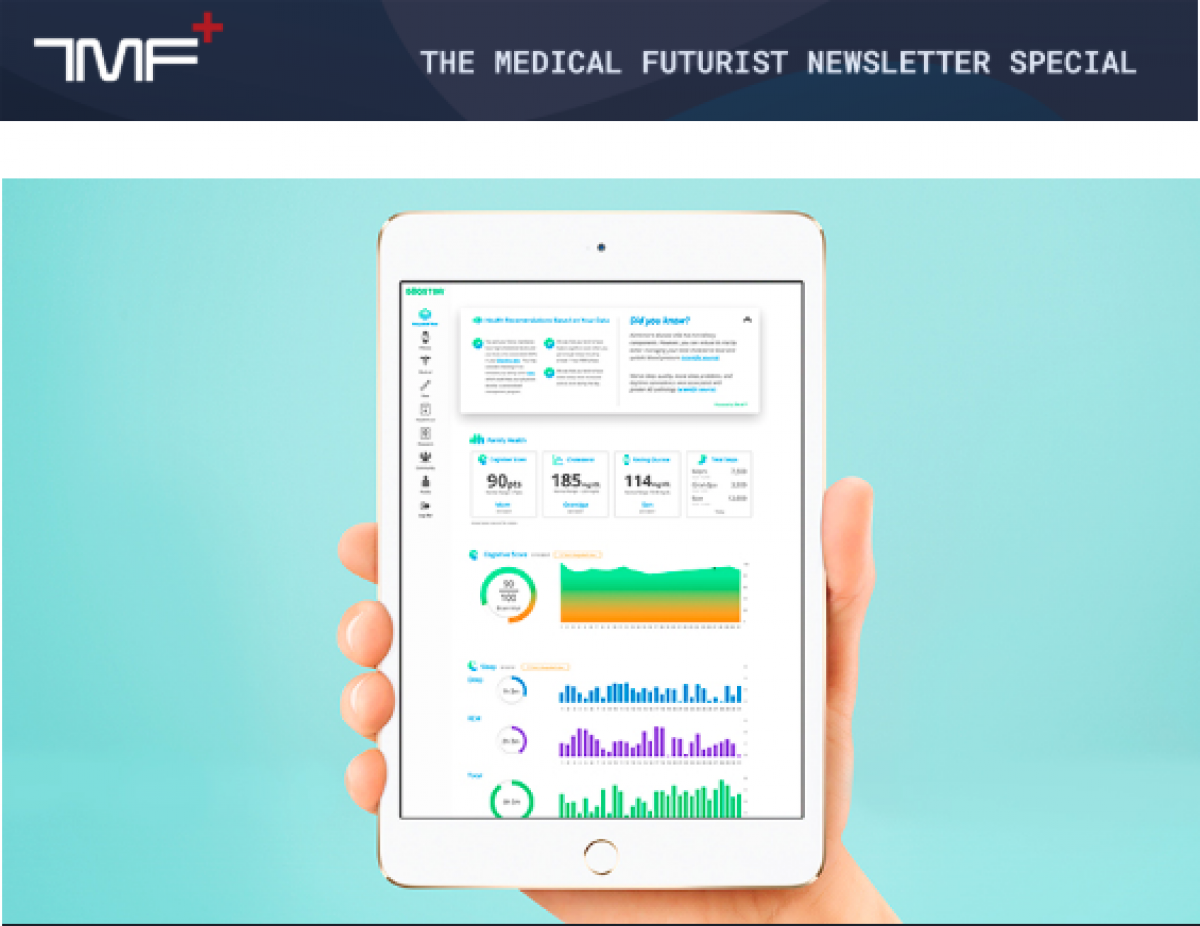Seqster Helps You Take Ownership of Your Health Data

SEQSTER BUILT A PLATFORM FOR ALL YOUR HEALTH DATA
The Medical Futurist Newsletter Special
San Diego-based start-up, Seqster, has been building a secure health data platform where users can have all their medical information stemming from electronic health records, lab results, genetic tests, fitness trackers, or wearables. Giant tech companies like Microsoft or Google have attempted to create such a multidimensional space, but Seqster was the most successful so far. The platform currently connects users to more than 3,000 healthcare providers comprised of more than 50,000 hospitals and clinics. The company has a partnership with Boston University Ryan Center for its Traumatic Brain Injury (TBI) study to improve patient recruitment and incorporate digital health metrics for enhanced assessment and monitoring. And they have ongoing discussions with government agencies underway.
The Medical Futurist asked Ardy Arianpour, CEO and Co-founder of Seqster about their platform, data security policy, and the future of health data management.
What's the story behind Seqster?
Arianpour: “We realized early on that your DNA data (baseline) does not tell the entire story of your health data. Your 23&Me report doesn’t mean anything by itself. It must be paired with your electronic health records (episodic care), and your data coming from fitness trackers, wearables, or remote monitoring devices (continuous care) like the Apple Watch in order to get a complete 360⁰ degree view.
From the outset, we have taken the position that your health data is fundamentally yours and that you should be able to have it all in one place to recognize the value of that data and empower you to make better healthcare decisions.”
How does the platform work?
Arianpour: “By putting the person at the center of their health data, we give them the tools to disrupt their own data siloes and bring in not only longitudinal but also multi-dimensional and multi-generational data. Users create a matched, longitudinal data profile across all of their electronic health records, lab results, medical images, genomic DNA profiles, wearables, home health and fitness solutions; and then use the Seqster’s first of a kind legal framework to share their health data with family members creating a multigenerational health record.”
Sounds like an enormous undertaking to put all this data into one place. Did you have skeptics regarding the feasibility of your initiative?
Arianpour: “Dr. Eric Topol, one of the foremost opinion leaders in the digital health space, was a Seqster skeptic when we first presented the concept in 2016. Two years later he invited us back in to see the platform and then asked to try it for himself. His tweet after trying Seqster and being able to pull together medical records from 1985 to present from four different medical centers, his 23andMe data, Fitbit data, MyFitnessPal, and various clinical labs within 24 hours, went viral and drove a considerable amount of interest in Seqster. This was the best validation that what we built is special.”
Could you elaborate on your data privacy policy? How do you ensure data security on the platform?
Arianpour: “We set out from the beginning to build our platform with industry-leading security, privacy, and transparency baked into it. Seqster is hosted on a HIPAA compliant platform which is ISO27001 and HITRUST CSF certified. Our platform includes proactive monitoring, penetration testing, security patches, and restricted network access. Protected health information (PHI) is stored separately from de-identified data, and PHI batch query is disabled. The data is encrypted with AES-256 standard both at rest and in transit. In short, Seqster has bank-level security and is more secure than most health systems, which did not conceive cyber threats when they first adopted electronic health records.”
How do you think patients will access their health data in the future? What do you think the future could bring in health data management?
Arianpour: “Access to health data is a challenge because of the roadblocks of competing interests and technological barriers. There are many initiatives that aim to unsilo the data and put the individual back in charge. Seqster is a pioneer in consumer-mediated health data exchange, the new paradigm in which the consumer controls, owns, and shares their health data on their terms. We see this as the future of health data management.”
I hope you enjoyed this week's issues. If you have any suggestions, recommendations for The Medical Futurist team, do not hesitate to reach out!
Kind regards,
Dr. Bertalan Mesko
The Medical FuturistSM
